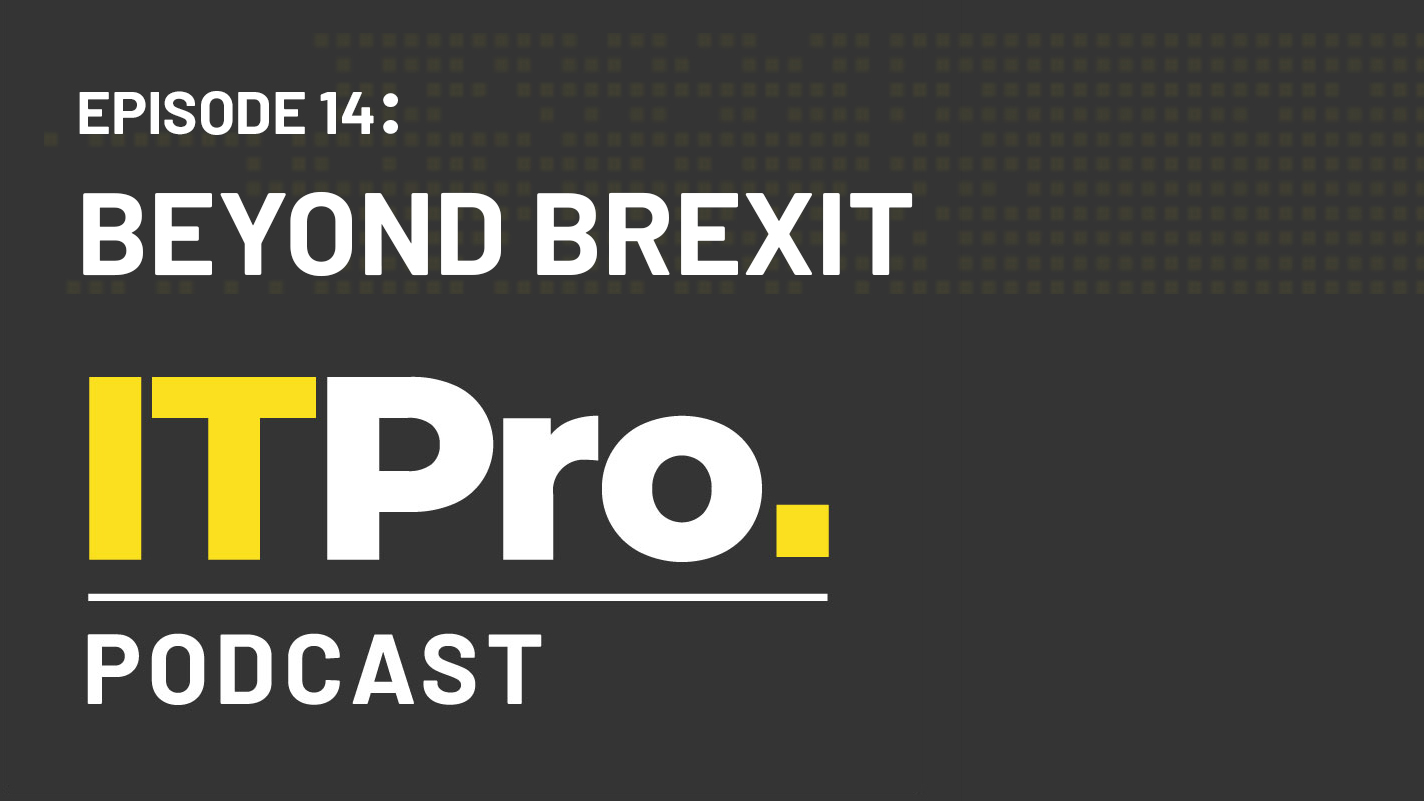Fujitsu execs outline Brexit concerns
Fujitsu executives say they are looking for specific outcomes in a potential Brexit deal

Sign up today and you will receive a free copy of our Future Focus 2025 report - the leading guidance on AI, cybersecurity and other IT challenges as per 700+ senior executives
You are now subscribed
Your newsletter sign-up was successful
Leaders at technology giant Fujitsu say the company is committed to the UK market, but that it wants to see certain results in a Brexit deal.
At the Fujitsu Forum 2016 in Munich, Duncan Tait, SEVP and head of Americas and EMEIA at Fujitsu, told me that the multinational tech company intends to continue investment in the UK. This confidence, however, comes alongside clear ideas about what the company wants from a potential Brexit arrangement between the UK and the European Union.
"Does Brexit affect anything at the macro level about how we'll continue to invest? No, it absolutely does not," said Tait. "It means we have to be careful operationally around some things, like careful management of foreign exchange rates and how that impacts our business.
"Near-term, there is no change. We'll look at some operational things that affect our business, and then we're being clear with both the European Union and the UK about what we believe is essential. If you believe that digital is a powerful force for good for the economy, then you need to make sure that, in exit from the EU, it is not damaged."
So, what does Fujitsu want from a possible Brexit deal? The company's head of product business for the EMEIA region, Michael Keegan, told me that these requirements cover three main areas: data passporting, movement of skilled individuals, and customs arrangements.
"We need to have an easy way to transport data from the UK to Europe and vice versa," said Keegan. "Currently, data centres in the UK have a lot of national details for EU nationals. If we don't get data passporting so that effectively a UK data centre can only hold the information of UK nationals this would be a really poor outcome for the UK, and a poor outcome for everyone else in Europe.
"Secondly, we require skilled individuals, whether they're in continental Europe or in the UK, to be able to be relocated to help our customers, whatever market they're in. If, within the European geography, it becomes difficult for a UK data-centre engineer to help a customer in Germany, that will become an issue for the industry in general. Similarly, if a German engineer couldn't help a UK customer, that would also be a poor outcome."
Sign up today and you will receive a free copy of our Future Focus 2025 report - the leading guidance on AI, cybersecurity and other IT challenges as per 700+ senior executives
Keegan said that this matter boils down to a smart visa system, which would enable skilled workers to pass efficiently between the EU and UK for short-term jobs.
The third area for Keegan is a means to prevent slowdown when exporting goods. "For any organisation exporting into the UK market, if the UK market is no longer within the EU then we need a smart set of customs arrangements, that do not result in goods being left in customs houses for long periods of time. That will bring latency and delay into supply chains."
When asked whether Fujitsu's future relationship with the UK hinged on these requirements being met, Keegan hinted that, while the UK is a fundamental market for Fujitsu, the scale of the company's involvement in that market could change.
"The more the UK is open for business with these sorts of arrangements in place, the more attractive it would be for inward investment, and the simpler it would be to headquarter businesses and capabilities in the UK," said Keegan. "If the UK didn't have these things in place, then I think Fujitsu would always be present in the UK, but I think largely our role in the UK would be about the UK domestic market."
Speaking to Tait, it's clear that the issue of worker movement is a key consideration for the company and for the prosperity of the digital economy in both the EU and the UK in general. "The skills of science, technology, engineering and mathematics are key to the future of digital, and we need to make sure that those skills can go where customer demand is," he commented.
-
 Mistral CEO Arthur Mensch thinks 50% of SaaS solutions could be supplanted by AI
Mistral CEO Arthur Mensch thinks 50% of SaaS solutions could be supplanted by AINews Mensch’s comments come amidst rising concerns about the impact of AI on traditional software
-
 Westcon-Comstor and UiPath forge closer ties in EU growth drive
Westcon-Comstor and UiPath forge closer ties in EU growth driveNews The duo have announced a new pan-European distribution deal to drive services-led AI automation growth
-
 Japan pursues green data centres to achieve carbon-neutral society
Japan pursues green data centres to achieve carbon-neutral societyNews The country is aiming to achieve energy savings of 40% or more in its domestic data centres by 2030
-
 The IT Pro Products of the Year 2021: The year’s best hardware and software
The IT Pro Products of the Year 2021: The year’s best hardware and softwareBest Our pick of the best products from the past 12 months
-

 Fujitsu Primeflex for VMware vSAN Appliance review: A piece of cake
Fujitsu Primeflex for VMware vSAN Appliance review: A piece of cakeReviews Fujitsu’s Primeflex makes VMware HCI deployment and management a breeze
-
 Non voyage: Coronavirus, Brexit and the future of business travel
Non voyage: Coronavirus, Brexit and the future of business travelIn-depth The current pandemic and the UK’s impending departure from the EU could have grave consequences for corporate travel
-
 The IT Pro Podcast: Beyond Brexit
The IT Pro Podcast: Beyond BrexitIT Pro Podcast The UK has officially left the EU, so what happens now?
-

 Fujitsu Server Primergy TX1320 M4 review: A powerful starter server
Fujitsu Server Primergy TX1320 M4 review: A powerful starter serverReviews A great little server for businesses that want plenty of power but lack the space for a rack
-

 Fujitsu Server Primergy TX1330 M4 review: A smart server investment
Fujitsu Server Primergy TX1330 M4 review: A smart server investmentReviews A budget-priced and highly expandable Xeon E-2100 tower server that has everything a growing SMB needs
-

 Fujitsu Server Primergy RX1330 M4 review: One cool customer
Fujitsu Server Primergy RX1330 M4 review: One cool customerReviews A beautifully designed and affordable Xeon E rack server with room to grow and commendably low power usage